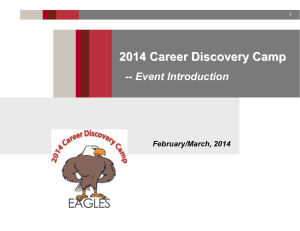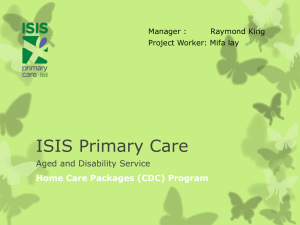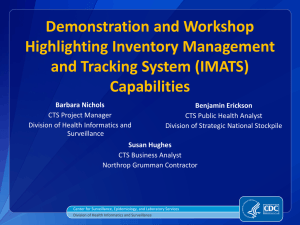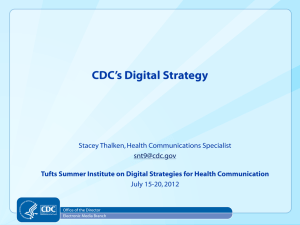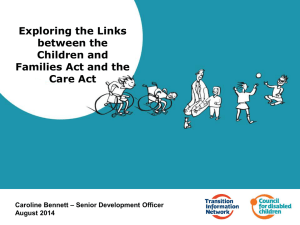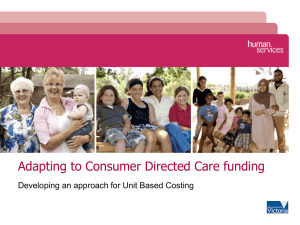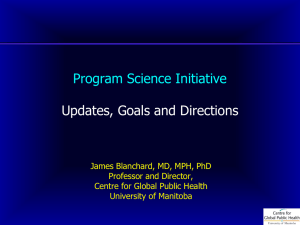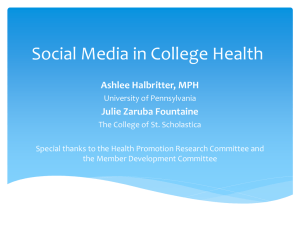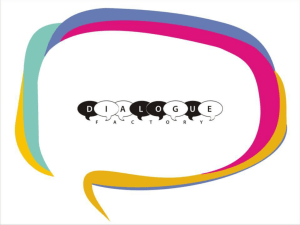Learn the Signs. Act Early.
advertisement
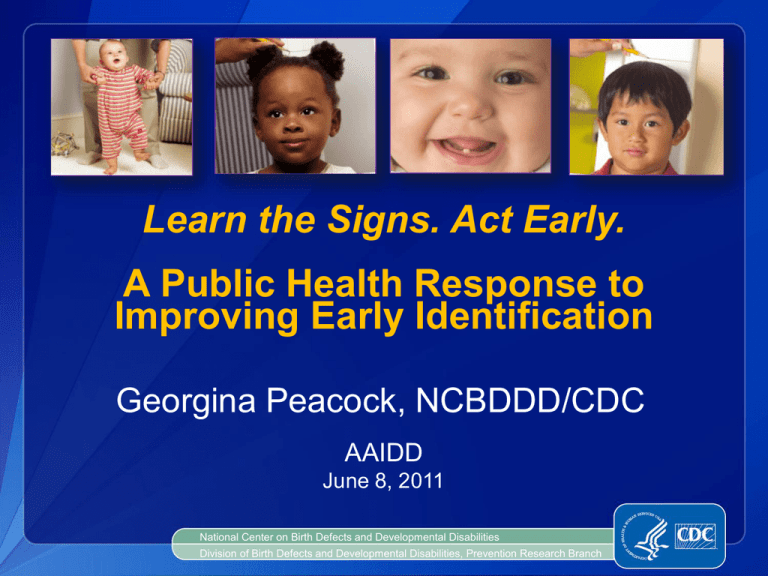
Learn the Signs. Act Early. A Public Health Response to Improving Early Identification Georgina Peacock, NCBDDD/CDC AAIDD June 8, 2011 National Center on Birth Defects and Developmental Disabilities Division of Birth Defects and Developmental Disabilities, Prevention Research Branch Learn the Signs. Act Early. www.cdc.gov/actearly Roxane: A champion for families • Experienced Parent program • Child had developmental problems “early on” and doctor referred to the local early intervention program • Roxane described milestones and the importance of early intervention and the early signs to watch for • Further suspicions of autism • Roxane helped guide family to to an autism clinic • Thriving in early intervention “Words will never be able to express how thankful I am for her teaching me early development and being my trusted friend.“ -Vicki Learn the Signs. Act Early. www.cdc.gov/actearly Learn the Signs. Act Early. Why this campaign? In the United States, about 1 in 110 children has an autism spectrum disorder1 About 1 in 8 children aged 3-17 has a developmental disability2 Many children with intellectual and developmental disabilities are not identified until after entering school Early intervention can have a significant impact on a child’s ability to learn new skills and providing needed support to families 1 Prevalence of Autism Spectrum Disorders. MMWR. December 18, 2009 / 58(SS10);1-20.. . 2 Ibid. Learn the Signs. Act Early. www.cdc.gov/actearly Learn the Signs. Act Early. Campaign Goals • Increase awareness of developmental milestones among parents of young children • Increase dialogue among parents and providers about child development and early signs of delay • Spur early action on developmental concerns Learn the Signs. Act Early. www.cdc.gov/actearly Target Audiences Parents of children under 4 yrs Early Educators Health care providers Learn the Signs. Act Early. www.cdc.gov/actearly Traditional Health Communication materials Learn the Signs. Act Early. www.cdc.gov/actearly Your Child’s Early Development is a Journey English and Spanish versions Downloadable from the website Customization available with local contact information Learn the Signs. Act Early. www.cdc.gov/actearly Milestones Moments Booklet Based on Bright Futures schedule Milestones from 2 months -5 years Parenting Tips Developmental Health Watch information Learn the Signs. Act Early. www.cdc.gov/actearly Autism Case Training: A Developmental-Behavioral case based curriculum Learn the Signs. Act Early. www.cdc.gov/actearly Act Early Initiative Model of Collaboration for Systems Change CDC AMCHP AUCD HRSA Improving system collaboration by bringing together key stakeholders in early identification of children with ASD and other developmental disabilities Learn the Signs. Act Early. www.cdc.gov/actearly Act Early Summits • Bringing together key stakeholders in states to improve awareness and early identification Summits completed in HHS regions 2007-2010 Learn the Signs. Act Early. www.cdc.gov/actearly Act Early Initiative Learn the Signs. Act Early. www.cdc.gov/actearly Act Early Initiative Components • AUCD and AMCHP grants • On-going technical assistance for Act Early teams • AUCD Research Topics of Interest • Act Early AUCD-NCBDDD Fellowship Learn the Signs. Act Early. www.cdc.gov/actearly Collaboration between federal agencies • HRSA/MCHB Autism Working Group – Act Early summits – State demonstration projects – MCHB Developmental Behavioral Pediatric Fellowships programs authors in ACT curriculum – Supplement to MCHB CAAI State Demonstration projects – Act Early Ambassadors Learn the Signs. Act Early. www.cdc.gov/actearly Future Directions • Additional Act Early funding through AMCHP in fall 2011 • Evaluation tool for Act Early teams to measure progress in development • Act Early Ambassadors – One year pilot June 2011-June 2012 Learn the Signs. Act Early. www.cdc.gov/actearly Act Early Ambassadors 1 year pilot project • Training Programs: UCEDDs, LENDS, MCH DB Peds Fellow • Representing psychology, pediatrics, special education, family members • Work with or create Act Early teams • Support awareness and education Learn the Signs. Act Early. www.cdc.gov/actearly Thank you! www.cdc.gov/actearly ActEarly@cdc.gov gpeacock@cdc.gov For more information please contact Centers for Disease Control and Prevention 1600 Clifton Road NE, Atlanta, GA 30333 Telephone, 1-800-CDC-INFO (232-4636)/TTY: 1-888-232-6348 E-mail: cdcinfo@cdc.gov Web: www.cdc.gov The findings and conclusions in this report are those of the authors and do not necessarily represent the official position of the Centers for Disease Control and Prevention.
